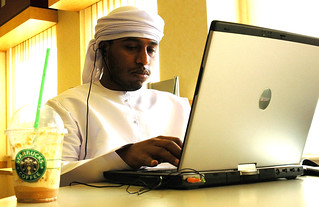In the places I work, there is a requirement for innovation, responsiveness, and a comfort with change that often calls for “a culture shift: a new environment in which the majority … think in new ways, develop new skills and have new understandings of themselves as professionals” (Bolstad, & Gilbert, 2012, p. 43). As such, there is sometimes an uneasy dichotomy when the current culture of the organisation sits alongside innovations that carry with them the likelihood that people will need to develop new ideas, knowledge and skills. An upcoming change in leadership, or a particular policy or project, for example, is likely to send ripples of uncertainty throughout a work context.
Most of the people I encounter have a clear idea of what they want, but are often not sure how to get there. Sometimes there is also a sense that they aren’t confident about how to avoid doing what they don’t want to do, or aren’t sure why something doesn’t feel quite right in their role. This is where coaching can assist, in part by helping them identify what is missing - and this could be something that is transactional (a skill set for example), or transformational (a need to delve into what their career and relationships actually mean for them, and identify their purpose).
Over time, once a clearer sense of identity and purpose have been identified the person would be able to not only take advantage of, but recognise, a broader range of possibilities. They would also be more likely to be open to learning, inclusive, tolerant, and resilient to change (may, in fact embrace change rather than feel a victim of it).
Our experiences of offering (optional) coaching / mentoring for 3 months (sessions every fortnight, with just-in-time coaching available when needed), or for 12 months (monthly one-hour long sessions) with an opportunity to extend - have been interesting.
For people who have chosen the three months transactional coaching option I have seen positive outcomes, especially where they have stepped outside their comfort zone and developed additional strategies, skills and understandings. These coachees feel more confident about their ability to accept and work comfortably with upcoming change. Interestingly, about two-thirds of the people on the three months option have extended it to twelve months. They seem to have experienced the positive outcomes, and have grown to recognise there is ‘something more’.
People with whom we have been working for 12 months or more, have been exploring the ‘why’ of their identity (as a professional; as a person within a specific life and work environment; with a set of beliefs, assumptions, and biases). They have been responding to challenging questions that have supported the process of transformation on the inside that will make sure they are ready to make the most of - and lead - upcoming change and beyond.
I have noticed, however, that everyone is in slightly different developmental phases. Some are ready for deeper conversations with the more wide-ranging, longer-term impacts, but others are looking for a mix of transactional and transformational, and often in varying proportions depending on their current stress and circumstances.
Coaching is not only about helping people to develop into thought leaders and lifelong learners, but it is also giving them a common language and, increasingly, a common mindset, that will help ensure we meet change with confidence. We will make mistakes, but these will be seen as opportunities to learn and feed into future strategies. People will be “achieving their goals [transactional] while also creating a new way of being [transformational]” (Chittenden, 2015, Para 2).
References:
Bolstad, R. and Gilbert, J., with McDowall, S., Bull, A., Boyd, S., & Hipkins, R. (2012). Supporting Future-oriented Learning and Teaching: A New Zealand Perspective. Wellington: Ministry of Education. Retrieved from
http://www.educationcounts.govt.nz/publications/schooling/109306.
Image:
 Are you looking for a short, online course to study...and that is, even better, free? Open2Study has an interesting variety of courses from which to choose, including subjects as diverse as:
Are you looking for a short, online course to study...and that is, even better, free? Open2Study has an interesting variety of courses from which to choose, including subjects as diverse as:



